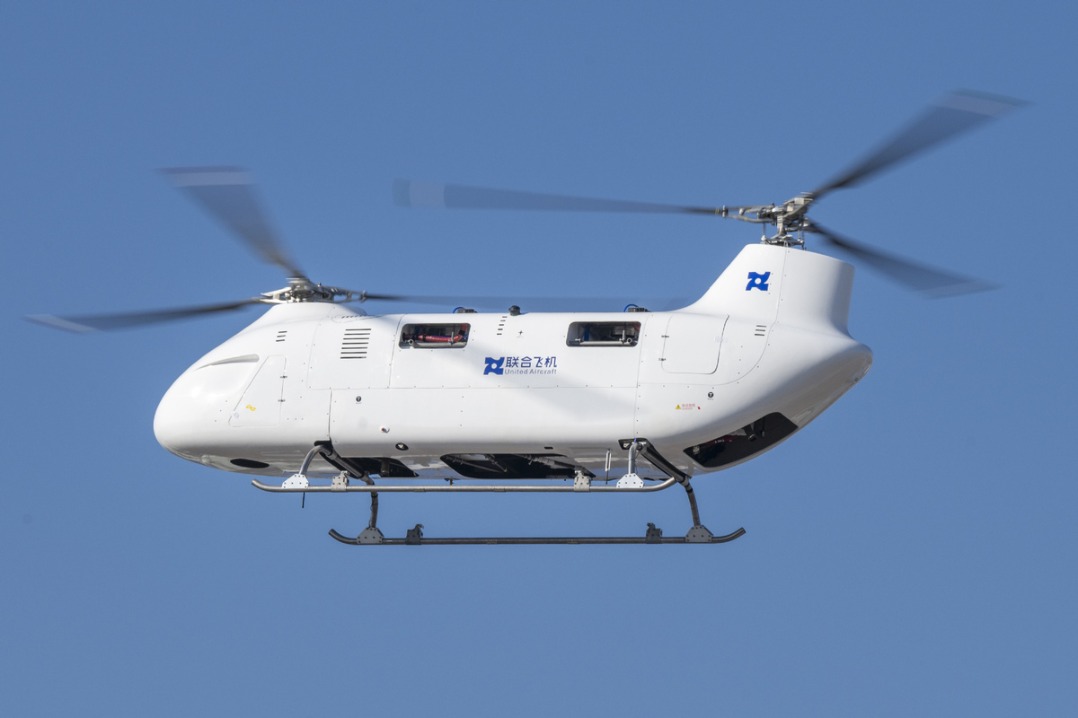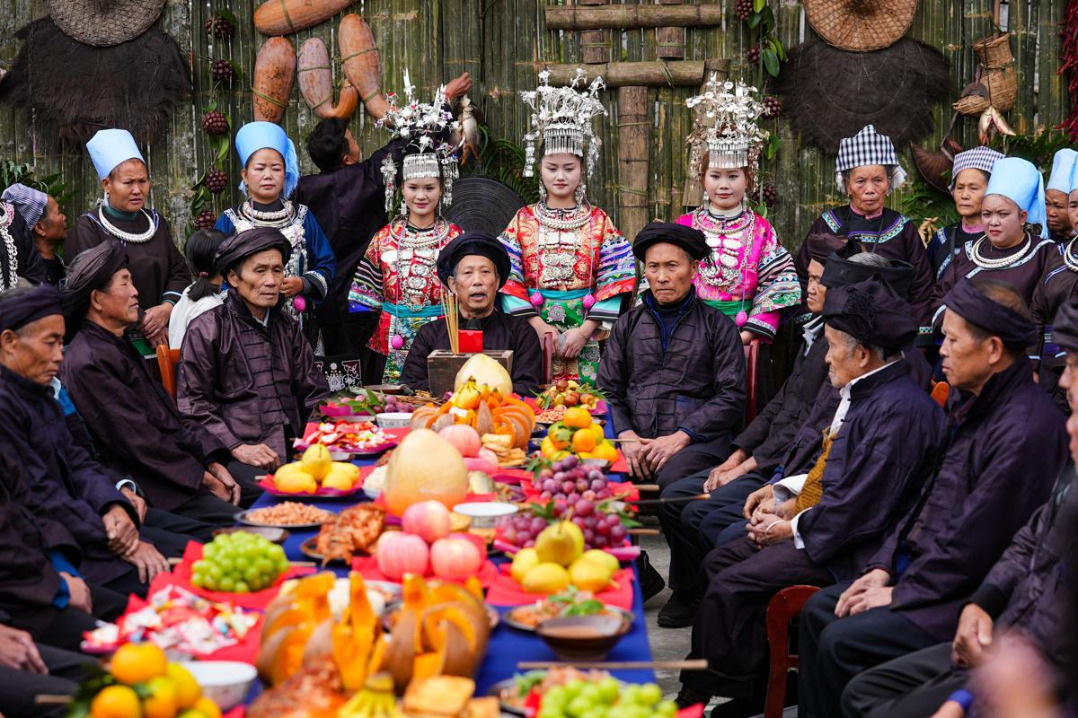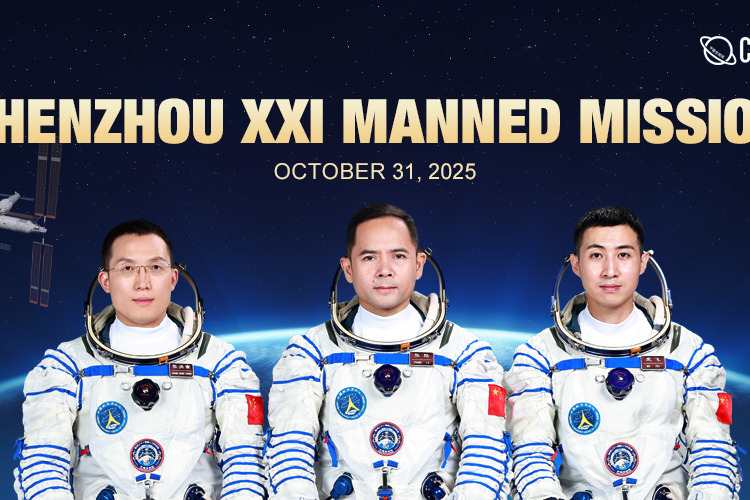Mulling over a future with 'blank checks'

Hong Kong's new listing regime for special purpose acquisition companies has drawn a slow but encouraging response amid global geopolitical uncertainties. Market pundits say the regime will attract high-quality enterprises to go public in the SAR with the city's strict listing rules. Zhang Tianyuan reports from Hong Kong.

Hong Kong is well up to the mark in trying to get special purpose acquisition companies (SPACs) aboard the city's bourse in its efforts to beef up its status as a world market for raising funds, as well as a global financial hub.
Since the Hong Kong Stock Exchange launched its SPAC listing regime in January, 12 SPACs have submitted prospectuses with a view to raising a total of HK$12 billion ($1.53 billion) in their IPOs. The new listing regime — an alternative to traditional IPOs — is to allow so-called blank-check companies, which do not have commercial operations, to get listed initially and then acquire or merge with an existing private enterprise.
HKEX made the move despite global headwinds created by market uncertainties arising from the COVID-19 pandemic as well as growing inflation and supply-chain disruptions that have taken a heavy toll on capital markets worldwide.
Market experts are split in their views on the international financial hub's SPAC listing regime, with some convinced that it will attract more high-quality investors to Hong Kong in the long run.
The Year of the Tiger — the Chinese zodiac year for 2022 — saw HKEX welcome the first SPAC in its listing history on March 18. Aquila Acquisition Corp, backed by an affiliate of Shenzhen-based China Merchants Bank Co, debuted on the main board, raising $128 million in its IPO. The company's stock price is traded at HK$9.3 — below its offering price of HK$10. It was followed by 11 other SPACs that have presented formal documents to HKEX about their flotation plans to stock market investors.
An HKEX spokesperson said the new listing framework aims to provide another route for businesses to raise funds in Hong Kong and allow more companies from the Chinese mainland, Southeast Asia and beyond to go public in the special administrative region.
Singapore — Hong Kong's financial-market archrival in the region — has so far completed three SPAC listings in the city-state. The three firms are Vertex Technology Acquisition Corp, Pegasus Asia, and Novo Tellus Alpha Acquisition Corp, which raised a total of $334 million in their respective IPOs.
Edward Au, southern region managing partner at Deloitte China, said he expects to see up to 20 SPACs listed in Hong Kong this year. The trend will be partly dictated by geopolitical tensions, as well as the performance of other SPAC listings that follow.
Mary Leung Ka-yan, head of advocacy for Asia-Pacific at the CFA Institute, said global uncertainties are wreaking havoc on many fundraising plans, and SPAC listings, like traditional IPOs or secondary offerings, are impacted. "Investors are displaying a high level of caution amid such volatility".
Statistics from Refinitiv — a US-British provider of financial market data — show that the amount of funds raised in IPOs for listings on the HKEX main board shrank by 90 percent year-on-year in the first quarter of 2022. As of March 28, only 11 companies had raised a total of $1.72 billion — the lowest since the first quarter of 2013. "Activity will remain subdued until there's a clearer picture of the global and regional growth outlook," Leung said.
Some financial pundits are upbeat, saying that Hong Kong's SPAC listing regime, which follows that of the United States and Singapore, is attractive and competitive for overseas investors with the support of the mainland market in the long run. This will have a positive effect on the development of Hong Kong's capital market.
Dramatic shift
A SPAC offers a new way of making merger and acquisition deals. A shell company listed on the stock exchange usually has a two-year period to seek a targeted private company and then merge with it to go public; otherwise, the funds raised would be returned to investors. Compared with the traditional IPO, the process of going public via a shell company would take a shorter period as negotiations to clinch a deal can be done directly between investors of the private firm and SPAC sponsors.
SPACs stirred a frenzy in the US market in 2020, with a record 248 SPAC IPOs raising $83.4 billion in gross proceeds, according to SPAC-tracking company SPACInsider. However, the US SPAC market has cooled significantly since 2022, with just $7.1 billion raised in the first three months of this year, according to data compiled by Bloomberg. It indicates that investors are becoming wary of funding companies with little revenue or inexperienced management teams.
The US Securities and Exchange Commission has tightened scrutiny of the SPAC sector to address issues about insufficient protection for investors.
Research conducted by financial scholars at the University of Hong Kong showed that the reputation, experience and quality of SPAC sponsors with a powerful network in the private equity and venture capital industries are key to the success of SPACs as investors rely on them in choosing what company to merge with.
Louis Lau, a partner with the capital markets advisory group of KPMG in China, said, "The focus of sponsors' due diligence work for the private company is not on an operations or business model as in a traditional IPO, but on transaction agreements and the profile of SPAC promoters."
Several SPAC promoters have a remarkable reputation and strong quality among shell companies filing for an IPO on HKEX. Among them are former Olympic gymnast and sportswear entrepreneur, Li Ning, who holds a 33 percent stake in Trinity Acquisition Holdings; Adrian Cheng Chi-kong, CEO of New World Development Company and A SPAC (HK) Acquisition; Lawrence Ho Yau-lung, chairman of Macao casino operator Melco Resorts & Entertainment and Black Spade Asia Acquisition; and Norman Chan Tak-lam, former CEO of the Hong Kong Monetary Authority, who holds 51 percent of the shares in HK Acquisition Corp.
Targeted SPAC acquisition firms in Hong Kong cover a wide range of sectors, including new energy, healthcare, biotechnology and green finance. Eden Wong Yi-dung, president of CPA Australia Greater China Division, said companies in these fields are growing rapidly and their valuations have been less affected by the public health crisis.
Peng Qian, director of the Tanoto Center for Asian Family Business and Entrepreneurship Studies at the Hong Kong University of Science and Technology, said that SPAC promoters like Cheng and Ho are from renowned business families that have gained extensive experience in handling SPACs from their family office operations and managing private wealth investments. The reputation of their families and their investing experience are beneficial to their SPAC listings, she said.
In Lau's opinion, a SPAC is just a way to get its target companies listed. Essentially, it's the Hong Kong IPO market that attracts private companies to go public.
Au said Hong Kong has a maturing ecosystem for innovative and new-economy companies to develop and thrive, and this will continue to be a powerful magnet for those enterprises, US-listed firms, SPACs and potential targeted businesses.
Hong Kong has maintained its ranking as the world's top IPO market in seven of the past 12 years. The SAR is also the largest biotech fundraising venue in the Asia-Pacific region and the second-largest globally, with 88 healthcare and biotech companies floated on HKEX, having raised a total of HK$255 billion since December.
New but rigorous approach
Mainland enterprises currently account for more than half of the companies listed in Hong Kong, taking up more than 80 percent of the total market value, according to data from the People's Bank of China. Last year alone, 87 mainland companies launched IPOs in Hong Kong.
Winston Ma Wenyan, adjunct professor at New York University's School of Law and author of The Hunt for Unicorns and Investing in China, said Hong Kong's SPAC listing regime could offer a new channel for mainland companies to go public as the IPO market in the US has been challenging for them lately.
Since 2021, eight Chinese mainland technology and electric-vehicle companies have completed homecoming listings in Hong Kong. The international financial hub has been a preferred fundraising venue for mainland firms because of the city's geographical proximity to the mainland and favorable capital flow mechanisms, backed by cross-border southbound and northbound trading through the Stock Connect links between the Hong Kong Stock Exchange and mainland financial markets.
"Hong Kong has positioned itself well in facilitating companies on the mainland to gain access to international capital. SPACs seeking targeted firms with principal operations on the mainland would find Hong Kong a more attractive option although other Asian markets are having similar or even more relaxed SPAC regimes," Lau said.
Hong Kong has strict regulations governing SPAC listings, including stock trading participation limited to professional investors, a 25 percent mandatory private investment in public equity of the negotiated value of the targeted firm, and at least HK$1 billion in capital to be raised in an IPO. Singapore and the US have no restrictions on the types of participants in SPAC listings and have lower minimum fundraising thresholds — S$150 million ($109.4 million) and $50 million respectively.
"Our approach is to welcome SPAC listing applications from experienced and reputable SPAC promoters seeking good quality targeted firms," an HKEX spokesperson said.
The slow start for SPAC flotations in Hong Kong compared with Singapore's could also be explained by the SAR's stringent compliance rules for SPAC listings, according to Leung. "The minimum deal size is larger than that in Singapore, and this may deter SPAC sponsors."
Leung said HKEX has placed greater emphasis on regulating shell companies in recent years and has not wavered because of SPACs. "Hong Kong's SPAC regime is the only regime that has ring-fenced its SPAC framework so far for professional investors only, scoring quite highly in investor protection."
"The inherent complexity and the volatility of SPACs, as well as their relative lack of track records in the city, provide a strong argument for tightening our rules. The fact is it emphasizes that no regulatory arbitrage is welcomed. There should be no difference in requirements for new listing candidates, regardless of the route they choose, via a traditional IPO or a SPAC."
An HKEX spokesperson said the bourse operator is confident about the SPAC program's long-term prospects for Hong Kong.
Wong thinks there will be a growing pool of stable and sophisticated investors in Hong Kong SPACs with the city's stringent rulebooks. "In the long run, this will help Hong Kong to become an ideal destination for listings of SPACs seeking to invest in high-quality new-economy companies."
"SPACs provide an alternative route for issuers and companies to raise funds in a more certain, transparent and timely manner. As market conditions stabilize, we expect Hong Kong SPACs to remain an attractive platform for investing in fast growing new-economy companies on the mainland," he said.
- Crew members ready for Shenzhou XXI mission
- China urges Philippines to 'mend its ways' over South China Sea provocations
- Key things to know about formulation of recommendations for China's 15th five-year plan
- Hainan striving to be a 'low-carbon island'
- Chinese-German metals company opens innovation center in Shandong province
- Automaker leverages premium audio to ride China's intelligent vehicle wave





































